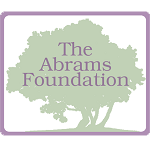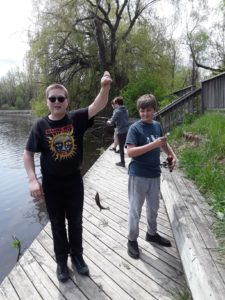Partners Continue to Help Camp
As MUCC and especially our camp program continue to pivot, and adjust to the hand we have been dealt, we wanted to take a moment to thank some of our partners. These partners have stepped up to lend a hand in our time of need. With the cancelation of our summer camp programming, the MUCC education budget took a $70,000 loss. This is a major hit as we rely on revenue generated from camp, not only to cover the costs of camp but also to help fund our year-round education programming. The outreach and education events we conduct in the spring, winter and fall, teaching kids and adults how to hunt and fish is primarily funded through revenue generated during the summer months.
With this funding gap in mind, the Abrams Foundation and the Riley Foundation through their connection with SCI-Novi have both committed to continuing their camp support during the 2020 season. Typically, both of these partners contribute substantial amounts of funding towards programming and ensuring youth from around the state can have a positive camp experience. The Abrams Foundation has supported the development of new programs and curriculum as well as equipment needed to run those programs. The Riley Foundation and SCI-Novi have sponsored the full cost of 80 campers to come to camp for more than a decade.

As the news of our program, cancelation reached both of the organizations they reached out and committed to helping camp shift program funds to operational fixed costs to help us weather the storm. These two organizations alone have contributed $44,000 that will go towards filling the budget hole that was created.
We also have received pledges from a few MUCC affiliate clubs who are shifting their sponsorship funds to help with operational costs and several families of campers have committed to chip in as well. We are continuing to narrow the gap.
As another way to raise funds, we are working hard to create a “Camp-to-Go” program that we will be offering to the public. The idea behind this is we are creating a resource of activities that you can do at home with your family. These activities will be similar to the activities that we do at camp. These activities will follow our outdoor recreation and environmental education curriculum and contain unique ways for your camper and family to enjoy the outdoors this summer.

We are currently developing these educational resources and hope to have these packets to interested families by late-June. These packets will be available for families to purchase. However, we know that each family is in a different financial situation, and because of that, we are not putting a standard price on our “Camp-to-Go” packets. Rather we are asking for donations to help cover the fixed costs of camp. We will have more information on the Camp-to-Go” program in early June. If you would like more information on Camp-to-Go, please reach out to Camp Director Max Bass.
Once again thank you to our partners for their continued support of our program.
If you have, any questions do not hesitate to ask, Max at mbass@mucc.org.
The post Partners Continue to Help Camp appeared first on Michigan United Conservation Clubs.
Recent Posts



